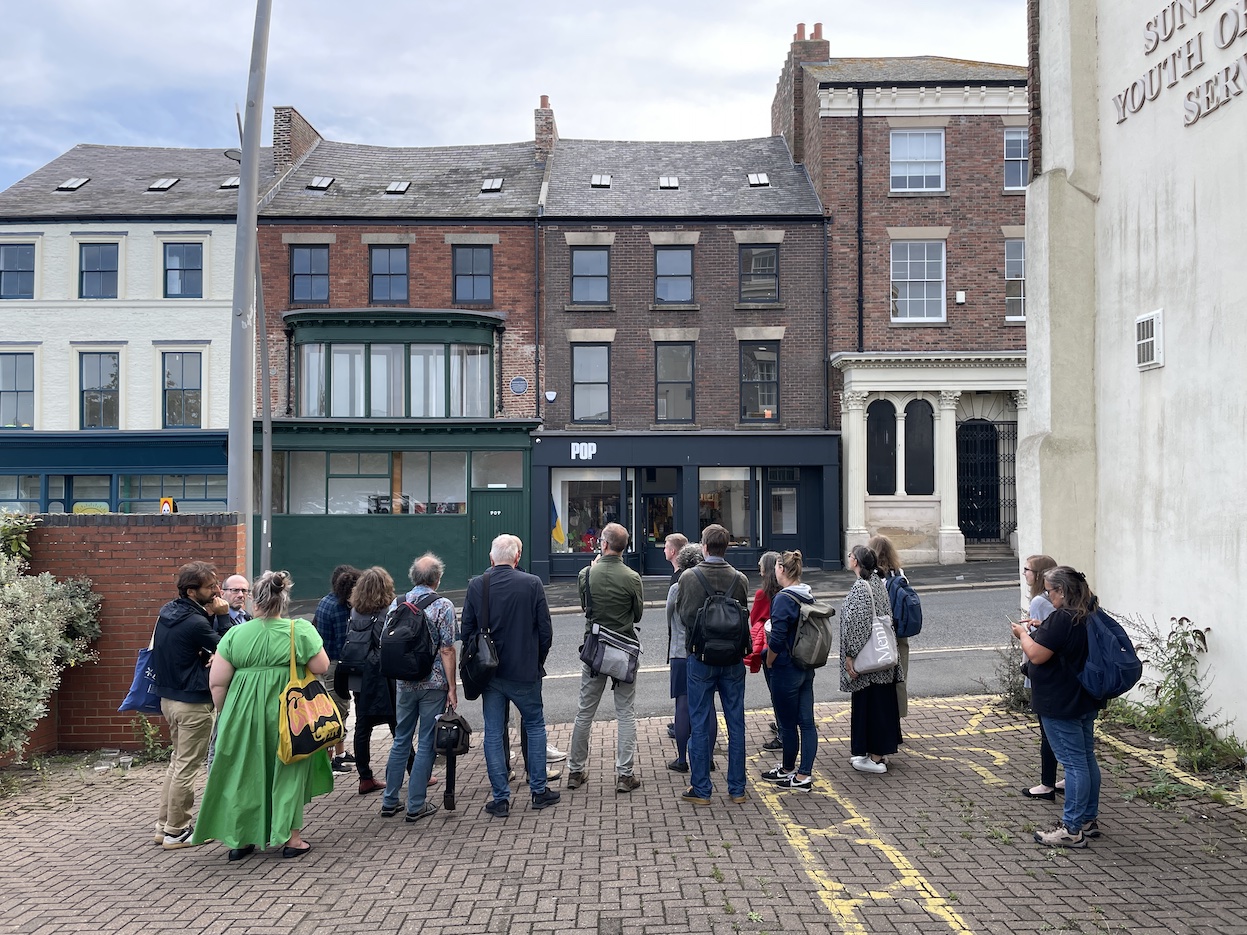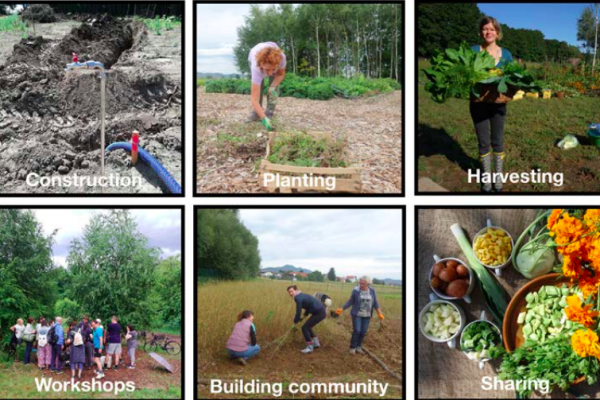Subscribe to our joint NEWSLETTER for
EUTROPIAN &
COOPERATIVE CITY MAGAZINE

Many of the challenges related to carbon emissions and climate change are connected to overconsumption and waste. The notion of circular economy offers a model where consumption waste and the byproducts of various activities can be reused as resources for other activities. As part of their ambition to reduce emissions and become carbon-neutral, many cities encourage or require the introduction of circular mechanisms in economic fields as diverse as the construction, textile or food industries. For example, an organisation that renovates its office can share leftover materials with other organisations, community gardens can use organic waste from restaurants or shops in the area to compost to create soil that can be shared with residents.


We have been working towards establishing circular mechanisms in various urban sectors through our research and consultancy work. In our research on food markets, we explored the possibility of conceiving market halls as circular hubs by better organising the collection and reuse of food waste in markets. As an EUI expert, Daniela Patti has followed and supported the Urban Soil 4 Food project of Maribor, aiming to increase local food self-sufficiency and minimise environmental footprint. We contributed to the Horizon 2020 project Reflow, steering the transition of European cities towards circular and regenerative practices, by using Fab Labs and makerspaces as catalysers of a systemic change in urban and peri-urban environments. In the Interreg Europe project GOOD CITIES, we’re supporting the creation of sharing systems that enable individuals, families and organisations in a neighbourhood and beyond to share equipment and household appliances.
We have been active in applying the civic ecosystems approach in various cities by co-designing circular mechanisms of sharing and reuse. For example, in the EUI project CUP4Creativity, Levente supported and documented the establishment of circular economy mechanisms in Újbuda, Budapest, around urban trees, furniture and semi-public gardens. As participants at the Reflow project, we contributed to the Circular Citizens Handbook. At another occasion, we joined the EU Urban Agenda Partnerships on Circular Economy and on Sustainable Use of Land and Nature-Based Solutions to publish the Sustainable and Circular Reuse of Spaces and Buildings handbook. Our research on the possibilities to regenerate food markets in Italy and across Europe resulted in the book “Il rilancio dei mercati: Spazio pubblico, servizi comunitari ed economia circolare.”

| Cookie | Duration | Description |
|---|---|---|
| cookielawinfo-checkbox-analytics | 11 months | This cookie is set by GDPR Cookie Consent plugin. The cookie is used to store the user consent for the cookies in the category "Analytics". |
| cookielawinfo-checkbox-functional | 11 months | The cookie is set by GDPR cookie consent to record the user consent for the cookies in the category "Functional". |
| cookielawinfo-checkbox-necessary | 11 months | This cookie is set by GDPR Cookie Consent plugin. The cookies is used to store the user consent for the cookies in the category "Necessary". |
| cookielawinfo-checkbox-others | 11 months | This cookie is set by GDPR Cookie Consent plugin. The cookie is used to store the user consent for the cookies in the category "Other. |
| cookielawinfo-checkbox-performance | 11 months | This cookie is set by GDPR Cookie Consent plugin. The cookie is used to store the user consent for the cookies in the category "Performance". |
| viewed_cookie_policy | 11 months | The cookie is set by the GDPR Cookie Consent plugin and is used to store whether or not user has consented to the use of cookies. It does not store any personal data. |
